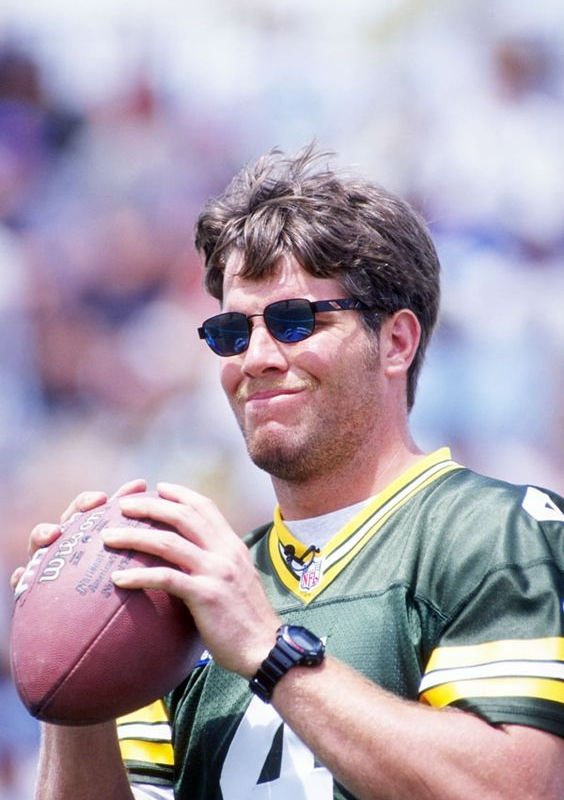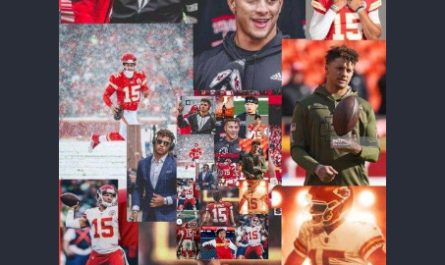Brett Favre: A Complex Legacy of Leadership Lessons
For over two decades, Brett Favre captivated fans with his gunslinging style of play and relentless competitive spirit. As one of the NFL’s all-time leading passers, Favre helped lead the Green Bay Packers to a Super Bowl victory and numerous playoff appearances. However, his career was also marked by controversies and decision-making flaws that overshadowed his accomplishments at times. By examining both the strengths and weaknesses displayed by Favre as a leader, there are valuable lessons that can apply to leadership in diverse fields.
Competitiveness and Drive
Favre’s passion for winning was unparalleled. He played through countless injuries that would sideline most players, from severe ankle sprains to multiple concussions. Even late in his career, Favre refused to accept being sidelined and pushed himself to return from injuries faster than expected. This relentless drive to compete at the highest level inspired his teammates on a regular basis. During games, Favre was a master of leading dramatic comebacks, refusing to concede defeat until the final whistle blew. His competitive fire burned brighter than any of his peers.
For leaders in any industry, cultivating an indomitable will to succeed and drive others towards victory is paramount. Favre demonstrated the importance of persevering through challenges, never accepting limitations, and inspiring those around you with a refusal to lose. However, balancing this competitive spirit with focus and care is also important for sustainable leadership. While Favre’s passion lit a fire under his teams, it sometimes fueled risky or impulsive decisions that backfired. Channeling drive into achieving strategic goals, rather than acting on impulse, allows leaders to tap competitive strengths while minimizing weaknesses.
Resilience in the Face of Adversity
Throughout his career, Favre endured intense scrutiny and criticism from the media and fans. He threw countless interceptions, had ball security issues that led to fumbles, and made questionable decisions that cost his teams games. However, Favre bounced back from these setbacks time and again to continue performing at an elite level. He refused to let mistakes or negative commentary get in his head, focusing only on preparation and improving for the next game. Favre’s mental toughness allowed him to withstand immense pressure.
Developing resilience is critical for leaders facing obstacles, setbacks, and naysayers. Favre demonstrated the ability to learn from failures without becoming discouraged. In any role, overcoming challenges strengthens character and capabilities. For organizations, resilience empowers teams to weather storms and emerge even stronger on the other side of adversity. While criticism should still be considered for growth, leaders must believe in themselves and stay focused on solutions rather than dwelling on problems. Favre’s example shows how bouncing back from difficulties can build lasting success over time.
Connecting Authentically with Fans
Perhaps Favre’s greatest strength was his ability to resonate with fans on a personal level. Coming from a small town and blue-collar background, Favre played the game with raw emotion and passion that fans could relate to. Whether celebrating victories with unrestrained joy or suffering crushing defeats with obvious pain, Favre wore his heart on his sleeve. His post-game interviews delivered blunt honesty without pretense. This authentic connection created a powerful bond between Favre and Packers fans that extended far beyond typical player-fan relationships.
Inspiring genuine loyalty and rapport requires transparency from leaders. Favre showed the importance of bringing your true self to your work, sharing successes and failures with humility, and prioritizing heart over polish. While some criticized Favre’s candor, he understood that emotional intelligence is key to motivating others. Authentic connections empower leaders to challenge their teams in meaningful ways while maintaining trust. In an increasingly disconnected world, Favre’s example of realness resonated powerfully and offers a guide for any leader seeking to inspire passion in their mission.
Leading by Example
Beyond raw statistics, Favre’s most lasting legacy may be epitomizing what it means to lead by example. He worked as tirelessly as anyone to hone his craft through endless film study and grueling practice regimens. Favre made sure to arrive first and leave last, setting the standard for effort, preparation, and professionalism that others strove to match. Even late in his career, he maintained an almost maniacal commitment to his training.
For leaders, actions will always speak louder than words. Favre showed that demanding excellence from your team requires demonstrating it yourself through a relentless work ethic. Leading by example is the surest way to gain respect and push others beyond what they thought possible. While natural abilities may attract followers initially, it is consistent effort over time that inspires true dedication. For any executive, coach, or visionary, Favre’s example illustrates that the most effective way to motivate a group is to outwork them personally on a daily basis. Effort begets effort when driven by a leader committed to constant self-improvement.
Decision-Making Under Fire
While Favre enjoyed immense success, his gunslinging play style and impulsive decisions also resulted in costly mistakes. He frequently threw across his body into coverage or made ill-advised throws into traffic under pressure. Some of Favre’s most memorable interceptions came in high-leverage playoff moments. Additionally, his repeated retirement flip-flopping created drama and uncertainty for his teams that compromised his leadership.
Decision-making is the most important yet challenging aspect of leadership. Favre showed that allowing emotion or ego to override rationale can undermine even the most talented individuals. Leaders must make sound, strategic choices considering all risks and rewards – not acting on whims. While instinct played a role in Favre’s successes, over-reliance on gut feelings without wisdom or planning led to unnecessary failures. Decisiveness, trust, and prioritizing the team’s well-being over personal agendas are paramount. Favre’s example demonstrates that leadership flaws can negate strengths if not kept in check.
Off-Field Controversies
Regrettably, Favre’s accomplishments were occasionally overshadowed by off-field controversies. High-profile sexting scandals damaged his reputation and became a distraction for his organization. Additionally, Favre’s desire for attention and fame seemed to contribute to his indecisiveness around retirement. While his competitive fire never wavered, Favre struggled at times to separate healthy passion from an unhealthy ego.
Leaders carry immense responsibility as public figures and must prioritize their organization’s reputation above all else. Favre provides a cautionary tale of allowing personal interests or indiscretions to compromise one’s influence. While competitive fire drives success, leaders must keep egos in check and channel energy solely into empowering their team’s mission. Additionally, maintaining a high standard of conduct and leading with integrity should always take priority over individual recognition or satisfaction. Favre’s legacy suffered because he occasionally lost sight of this principle.
Balancing Strengths and Weaknesses
While Favre’s career demonstrated both exemplary leadership qualities and flaws, the most important lesson is balancing strengths with awareness of weaknesses. No leader is perfect, and growth requires acknowledging areas for improvement alongside natural talents. Favre inspired through relentless passion but may have accomplished even more with wiser decision-making. Overall, his story offers a case study on how to maximize assets while mitigating risks.
For any aspiring leader, Favre’s complex example provides valuable takeaways. Channeling competitiveness strategically while developing mental toughness sets the stage for long-term success. Connecting with followers authentically through hard work and dedication builds genuine loyalty. However, decisiveness, integrity and putting the team first must also take priority to avoid pitfalls. With self-awareness and constant learning, leaders can apply both the strengths and cautionary lessons from Brett Favre’s accomplished yet nuanced career.



